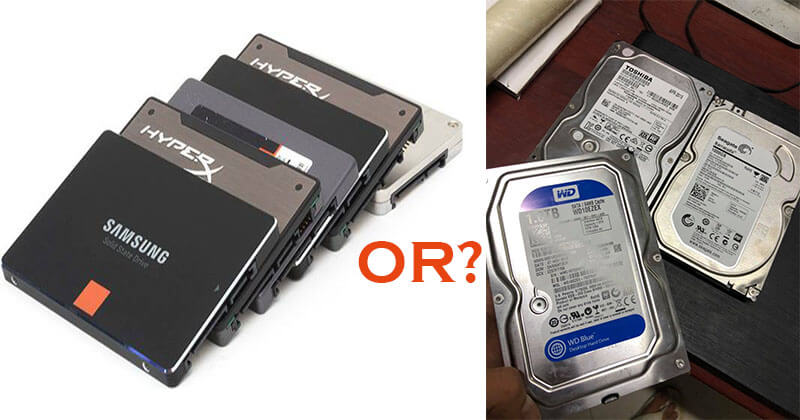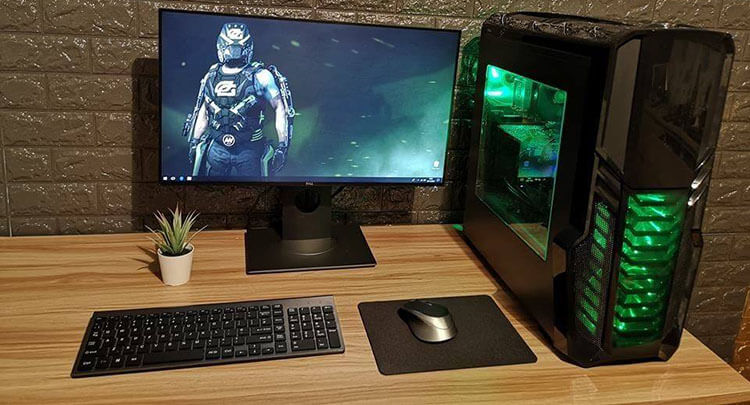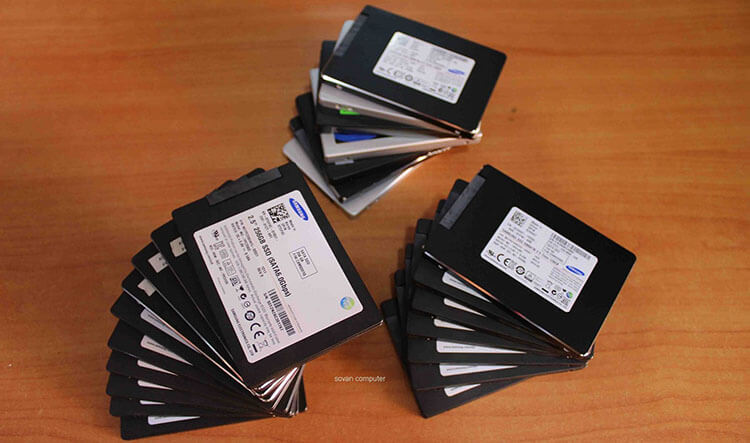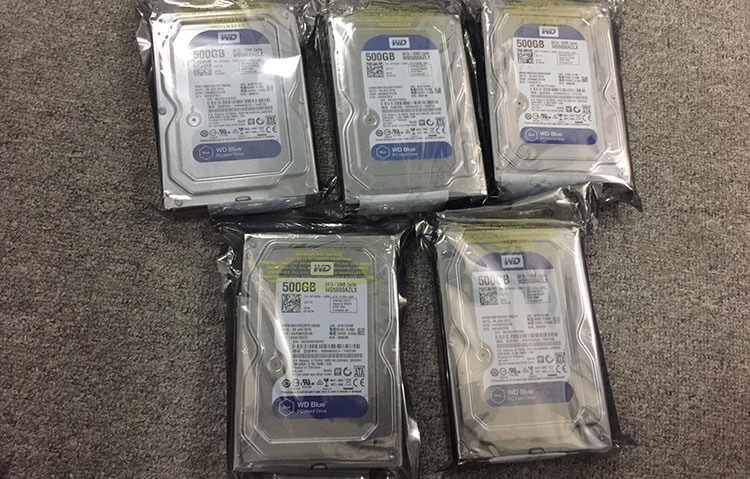Except for the most minimal of budget systems, an SSD is a must-have for every home computer, whether it’s used for gaming or not. With merely an SSD, you can play any game smoothly.
Hard disk drives (HDD) provide more capacity for the same price. They are also superior for archival purposes, such as storing copies of your personal files and gaming footage for the foreseeable future. Therefore, you should really think about getting both an SSD and an HDD.
SSD vs. HDD: Which is Better for Games?

Both solid-state drives (SSDs) and hard disk drives (HDDs) have their advantages and disadvantages when it comes to playing games. To choose the best choice, think about the price, size, capacity, speed, and longevity, among other factors. Let’s take a look at the distinctions between solid-state drives and hard disk drives for gaming and see which one is best.
Cost:
It’s not an either/or situation when deciding between a hard disk and an SSD. Hard drives and solid-state drives (SSDs) may be used together or separately in a variety of combinations to meet the needs of those on a tight budget while yet meeting the need for quick boot times. Try to choose the largest, quickest drive that you can afford without worrying about the cost.
Storage Capacity:
There is a wide variety of capacities available for modern drives. Storage drives on a smaller scale don’t make sense for gamers due to the installation requirements of modern games. Drives between 500GB and 2TB are typically selected due to the favorable price-to-performance ratio they offer. SSD storage is quickly surpassing HDD capacity. HDD manufacturers are having difficulty increasing aerial density to compete with SSDs as SSDs continue to expand and grow in popularity.
Drive Speed
Both hard disk drives (HDDs) and solid-state drives (SSDs) are useful for gaming. Modern games can take up anywhere from 15 GB to 185 GB of storage space on a single installation, so the HDD needs to be fast enough to support the graphics without lagging.
One area where Solid State Drives (SSDs) excel over HDDs for gaming is load times. Because they lack moving components, solid-state drives (SSDs) are always ready to go and can load content quickly.
Installing a solid-state drive will shorten the time it takes for games to load, which is ideal if you’re impatient. The use of an SSD may greatly enhance the speed and performance of your machine.
| Storage Type | Typical Read Speeds |
| Hard Disk Drive | 250 MB/s |
| SATA SSD | 600 MB/s |
| Gen 3 NVMe SSD | 3500 MB/s |
| Gen 4 NVMe SSD | 6000 MB/s |
Is a Solid-State Drive (SSD) essential for playing video games?

Solid-state drives (SSDs) are quickly replacing traditional hard disk drives (HDDs), but can they live up to the burgeoning interest in them?
SSDs are more compact than HDDs:
At just 2.5 inches in height, they are noticeably less bulky than regular hard drives (6.35 cm). M.2 NVME SSDs outperform SATA drives in speed and size. Unlike traditional hard drives, which consist of several moving parts (such as a metal arm), SSDs only have one fixed component. They weigh a lot less compared to HDDs, so you won’t have to worry about adding extra bulk to your PC tower.
Boot-up and application load times are decreased using SSDs:
It is possible to retrieve data from solid-state devices much more quickly than from a hard disk drive. Unlike SSDs, which don’t have any moving components and can load data and start applications very rapidly, HDDs need regular movement and repositioning of their platters and arm while reading and writing.
SSDs are quieter than HDDs:
Solid-state drives don’t make any noise at all, so you can say goodbye to the annoying whirring and spinning of your old hard disk drive. This, once again, is mostly attributable to the fact that SSDs lack any moving or otherwise interacting elements. Because of this, they also lack the vibration associated with HDDs.
A PC using an SSD won’t become too hot:
Long gaming sessions might cause your computer to overheat due to the HDD’s continual spinning, movement, and vibration. Many popular recent PC games need massive amounts of hard drive space. In contrast to HDDs, SSDs can swiftly access and load large game files without forcing your computer’s cooling fans into overdrive.
SSDs have a lower power consumption:
Hard disk drives (HDDs) still use a significant amount of power whenever they are accessed, although this is less evident on a desktop gaming computer than on a gaming laptop. Thus, storing data on an SSD is more energy-efficient than an HDD, and may potentially assist reduce the monthly cost of your electricity bill.
The Effects of SSD on Video Games

It’s true that an SSD won’t improve your framerate when playing your favorite games, but it will still provide benefits over a standard hard drive. And that is just the startup time.
It’s good knowing that games put on an SSD have a far quicker startup time than those on a regular hard disk. Although performance will vary from computer to computer and game to game, in certain cases the time it takes to launch a game from an SSD might be much shorter than the time it takes to boot the same game from a hard drive.
When a game is loaded on an SSD, it loads far quicker than when it is put on a hard drive, both when entering the game and when exiting the menu. Although the difference between SSDs and HDDs is not as pronounced as it is during game boot times, SSDs still provide a little benefit when transitioning from the menu into a game.
The bottom line is that an SSD won’t improve your frames per second, but it will cut down on the time it takes to go from the point when you open the game to where you can start playing it.
Is it a good idea to use both HDD and SSD for Gaming?
When deciding whether or not to entirely switch to an SSD lifestyle, finances are always a key factor to consider. Naturally, solid-state drives (SSDs) are the best choice if your budget allows since you can buy multiples and surround them with the necessary gear to run them efficiently. HDDs, though, are still beneficial for those of us with more pedestrian bank balances.
Even if you plan on using an SSD as your primary storage device (which you absolutely should), picking up an inexpensive and sizable HDD as your backup or tertiary drive is perhaps the best option. In addition to storing large amounts of data, it may also be used to store films, games, and backups.
A small number of games can still find a home on your SSD, but there are many more files that are well suited for the slower transfer rates of a standard hard drive. To be sure, we’ll be among the first to enthusiastically embrace the coming solid-state era, but for the time being, it makes sense to maintain a sizable HDD on hand.
How much storage space do games use on your drive?
A 512 GB solid-state drive coupled with 2 or 3 TB of hard disk space should be plenty for infrequent gaming. In this manner, you may play the few games you own quickly on an SSD while storing all of your other data on a much larger HDD that is slower but more suited to your other storage demands.
When it comes to installing games and storing the actual game files, a 1 TB or, at the very most, a 2 TB SSD will enough for casual gamers.
As a professional gamer, you should aim for a storage capacity of at least 3 terabytes (TB) on your SSD. Although a larger 5, 8, or even 16 TB SSD would be preferable, a 3 TB SSD might do if the cash on hand were tight.
What HDD and SSD are the Best for Video Games?

Hard drives for gaming PCs are no different from any other kind of hardware in that there are a number of factors to think about before making a final purchase.
NVME SSD
- GP-AG70S2TB-P (AORUS Gen4 7000s Premium SSD 2TB, PCIe 4.0 NVMe M.2)
- SAMSUNG 980 PRO SSD with Heatsink 2TB PCIe Gen 4 NVMe M.2 Internal Solid State Hard Drive, Heat Control, Max Speed, PS5 Compatible, MZ-V8P2T0CW
- SAMSUNG 980 SSD 1TB PCle 3.0×4, NVMe M.2 2280, Internal Solid State Drive, Storage for PC
- WD_BLACK 1TB SN770 NVMe Internal Gaming SSD Solid State Drive – Gen4 PCIe, M.2 2280, Up to 5,150 MB/s – WDS100T3X0E
SATA SSD
- SAMSUNG 870 QVO SATA III 2.5″ SSD 2TB (MZ-77Q2T0)
- Western Digital 1TB WD Blue SA510 SATA Internal Solid State Drive SSD – SATA III 6 Gb/s, 2.5″/7mm, Up to 560 MB/s – WDS100T3B0A
SATA HDD
- WD_BLACK 8TB Gaming Internal Hard Drive HDD – 7200 RPM, SATA 6 Gb/s, 128 MB Cache, 3.5″ – WD8002FZWX
- Western Digital 2TB WD Black Performance Internal Hard Drive HDD – 7200 RPM, SATA 6 Gb/s, 64 MB Cache, 3.5″ – WD2003FZEX
- Seagate BarraCuda 2TB Internal Hard Drive HDD – 3.5 Inch SATA 6Gb/s 7200 RPM 256MB Cache 3.5-Inch – (ST2000DM008/ST2000DMZ08)
- Western Digital 2TB WD Blue PC Internal Hard Drive – 7200 RPM Class, SATA 6 Gb/s, 256 MB Cache, 3.5″ – WD20EZBX
Conclusion
There’s no need for a hard disk drive (HDD) if all your games and other data can be stored on your solid-state drives (SSDs).
However, you may have a large library of games that need a large storage capacity. The benefits of SSDs to gaming are debatable, as many games run just well on HDDs.
The speed of an SSD isn’t necessary for media playback or video recording (including live streaming), but a large amount of storage capacity is. Adding an extra HDD is far more cost-effective than getting an all-SSD system if you plan on keeping a lot of media files or recording a lot of games.
